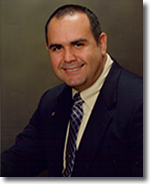
What do you say to the insulin-dependent diabetic with blood pressure reading of 197/99? The patient had a cart of poor diet choices which included 2 loaves of white bread, sodium-laden prepared food, chips and soda when she stopped by for a blood pressure check. After the screening, I quizzed her on her medication, prior health, diet and physician interaction while re-iterating that I was willing to contact her physician and work with him to get her under control. She told me that she already had one heart attack, and that her blood pressure had not changed since her physician last took it two weeks ago (199/99). She refused my assistance at every turn, left her result form and proceeded to checkout. She told me that she will tell him on her next visit in a month.
How about the patient that was “slamming down sugar” for the last year? He happened to stop by and wanted his blood sugar checked. The glucose meter simply read “HI”. He reported symptoms of frequent urination, increased thirst and weight loss. After informing him to pay a visit to his physician as soon as possible, he left the bag of candy on the table, bought a liter of water and went directly to a walk-in clinic. He was ultimately admitted to the local hospital where he stayed for 4 days until his sugar level dropped from over 600 to 180.
So many people walk around without a clue of what it takes to get, be or maintain their health. Even some physicians who are monitoring patients walking around with blood pressures and blood glucose levels that require hospitalization do not have a clue. Sure it is difficult to do the right thing, but if the patient or physician is not interested in or do not care to do the right thing, then that makes it ok, right? I don’t think so.
As the frontline healthcare professionals, pharmacists see patients on a daily basis, sometimes as the first contact when they have a chief complaint or issue that requires resolution. At this point of contact, when we discover a serious situation, we should try our best to encourage the patient to seek immediate care. While we cannot force someone to go to the closest walk-in clinic, giving them the alternative to their decision to disregard our advice should be emphasized. It may “scare” them into doing the right thing, even though that is not the intention. We need to be determined, for their sake.
So, the next time you discover a serious patient situation that requires an urgent intervention, give the patient an education and don’t quit until they are aware of both sides of their decision. You just might save a life.
Until next week, stay healthy.
Dion

